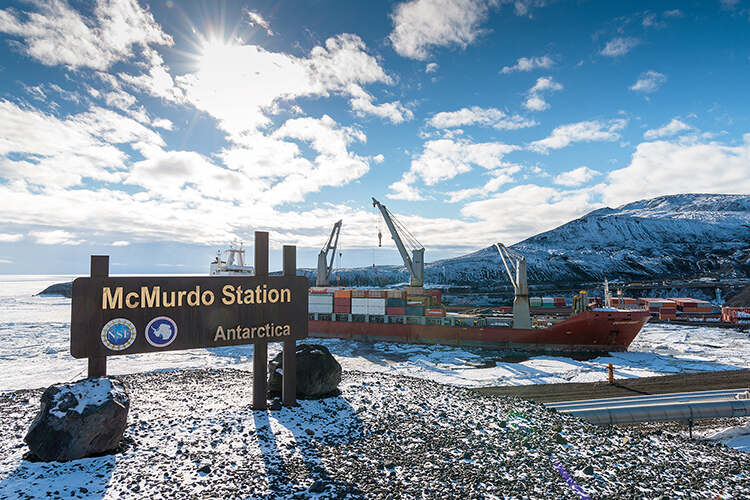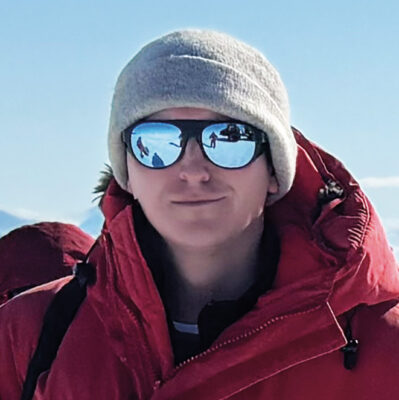
Emergency medic Ryan Ahlgren, talking to Bryony Cottam, shares his tips for surviving expeditions

It’s April in Antarctica, just a few days before the sun sets for the final time over Ross Island. Four long, dark months lie ahead for the remaining crew at McMurdo, the American Antarctic research station on the island’s southern tip. For Ryan Ahlgren, an American emergency medicine provider stationed at the base, work carries on, albeit at a slower pace. But there’s every chance that things could quickly get complicated. ‘This is a very difficult place, logistically,’ he says. ‘We get a lot of people visiting the station from NASA who talk about how it’s easier to get people back from space. If you get hurt in Antarctica, a lot of the time you’re stuck here.’
Life at McMurdo Station, says Ahlgren, can feel a lot like living on the moon. During the summer, the base transforms into a small town with capacity for 1,500 residents – research scientists, but also carpenters, IT technicians, cooks and hairdressers. Right now, with the summer season drawing to a close, the numbers have dwindled to just 170 people, including 50 whose departure has been delayed by more than a month. Beyond this small community, and the handful of people stationed at New Zealand’s Scott Base three kilometres away, Ahlgren says there’s no-one. ‘Absolutely no-one.’
Ryans’s travel insights
• Be open and ready to take on new challenges
• Do your homework and verify that proper safety measures are in place and staff are suitably experienced
• Build a sense of trust and community with your fellow travellers
Despite this, Ahlgren says he feels more at home on the base than he does back home in the USA. ‘I think I have a melancholic disposition,’ he says with a smile. ‘I always wanted to go out to remote and austere locations.’ When his career in the US military was cut short by an accident, Ahlgren found his calling in emergency medical care. His work has led him to the frontlines of conflicts in Iraq and Ukraine, where he worked alongside small but dedicated humanitarian aid teams; to Papua New Guinea, where he supported local workers in the remote and dangerous jungles; and finally to Antarctica, where he’s now one of just two licensed clinicians currently staffing McMurdo Station over the winter months.
Ahlgren admits that some people might struggle with the constant darkness of a polar winter. It takes a certain kind of mentality – and having a good sense of humour comes in handy. ‘However, I think the ability to face adversity in challenging places, or to deal with the cold and isolation of somewhere like Antarctica, comes down to a willingness to form connections. For me, that could mean helping another group do something completely unrelated to medicine, just to build that sense of trust and community. It also helps if you can find a way to keep busy,’ he adds.
Ahlgren says his own arrival on Ross Island, back in January, was a fairly last-minute decision. He’s fortunate, he adds, to have worked in some interesting places around the world, although being ‘open to everything’ has helped to bring plenty of opportunities his way. He’s already on the lookout for his next expedition, wherever that may be – his only stipulation is that his teammates share the same drive for exploration. ‘I think being flexible is pretty important. There have been a lot of jobs that have called and asked, “Hey, can you leave in 24 hours?” And my answer is, “Sure.”’
That said, he cautions against saying yes to travelling with any organisation without vetting them first – verifying the experience of their staff and checking that they have safety measures in place. ‘A lot of people don’t realise that there are a lot of cowboy medicine organisations out there that don’t prioritise the safety of their individual volunteers,’ he says. ‘And that’s something to bear in mind in the expedition world as well. You want to make sure that any organisation has plans in place for when something goes wrong.’




